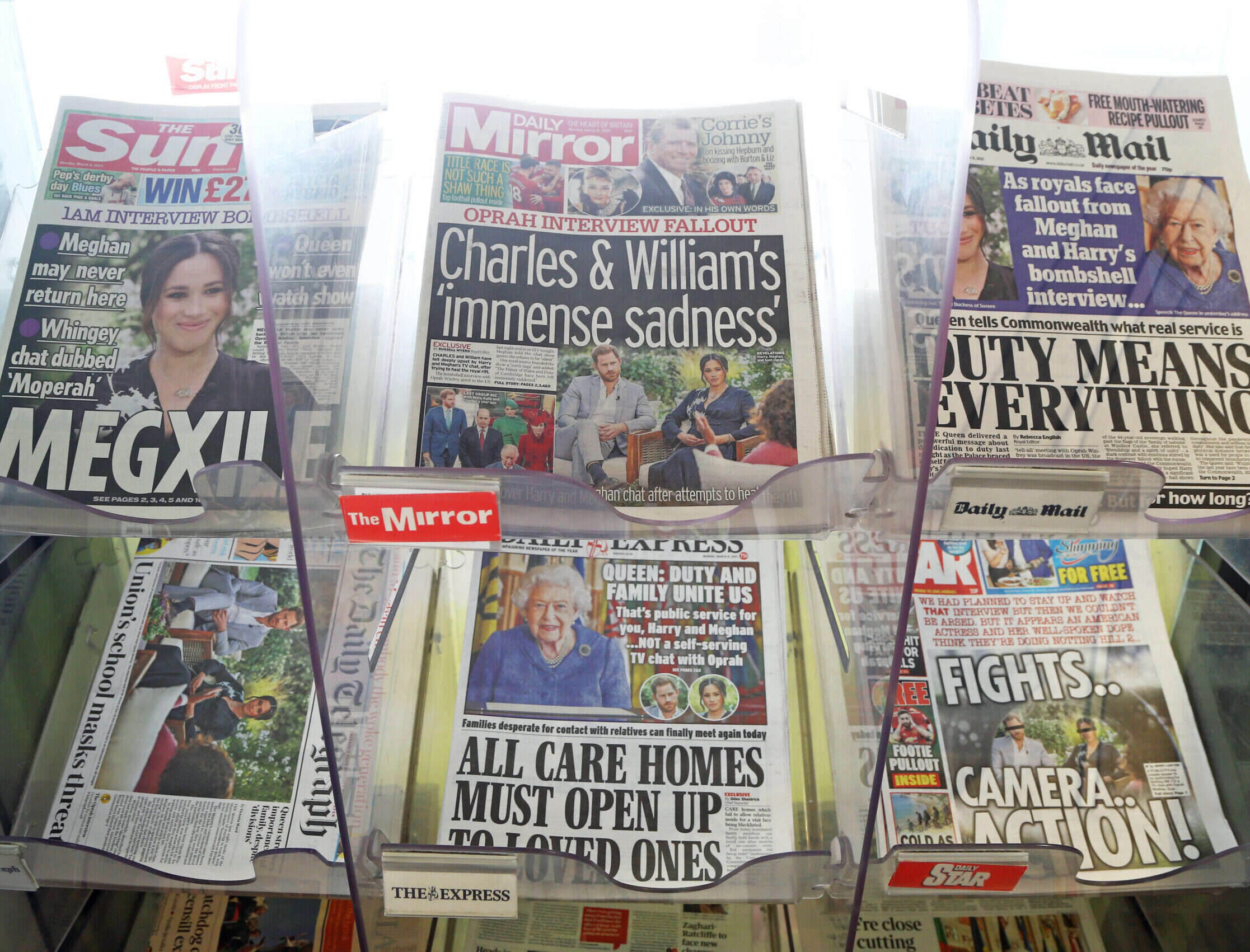
Press Gazette’s findings that almost four in ten UK journalists who responded to our survey have experienced or witnessed racism at work are “hugely disappointing, but sadly not surprising” according to one industry body.
Some 1,002 Press Gazette newsletter subscribers responded to our survey, 72% of whom described themselves as journalists. Some 66% of journalist respondents said the UK media is bigoted or racist in some way and 79% of those said it was a problem across all media, not just tabloids.
Some 50% of journalist respondents said at least some coverage of Harry’s wife Meghan Markle had been racist in tone or presentation, and 38% said they had personally experienced or witnessed racism whilst working in the UK media.
Read more:
- Two in five journalists responding to our survey say they have seen or experienced racism working in the UK media
- Two-thirds of journalists responding to our survey say UK media is bigoted or racist in some way
- Meghan coverage was racist according to half journalists filling out Press Gazette survey
- Comment: Prince Harry has highlighted an issue for the news industry which needs to be addressed
In response Richard Reeves, managing director of the Association for Online Publishing, told Press Gazette: “These findings are hugely disappointing, but sadly not surprising.
“They provide further evidence that there’s a lot more work to be done with most people having experienced some sort of prejudice, and recent high profile examples – like the fallout from the Harry and Meghan interview – demonstrating the magnitude of the problem.”
AOP’s board members represent major UK publishers including News UK, the Mail, the Guardian, the Telegraph, ESI Media, JPI Media, Global Radio, Bauer Media, Future, Dennis Publishing, and Immediate Media.
Reeves added: “As an industry – and as a society – we all need to work together to provide platforms for open discussion to directly address these issues and ensure that all views are equally represented. Social responsibility, diversity and inclusion have been and remain front of mind for AOP, and we continue our commitment to provide trusted forums to talk openly and honestly, and help facilitate change.”
[Read more: Liz Gerard investigates press bigotry and the claim Meghan Markle coverage was racist]
Saima Mohsin, a TV presenter and international correspondent who says she is proud to come from a working class, British Pakistani and Muslim background, told Press Gazette the findings did not come as a surprise but that she was pleased so many white journalists shared the concerns of non-white colleagues.
Some 62% of the total white respondents said they felt bigotry and racism was a problem in UK media, with 49% of white working journalists agreeing.
Mohsin described this as “the very first step and yet a huge hurdle as we saw from the Society of Editors initial response and absence from the discussion since”.
Guardian deputy opinion editor Joseph Harker agreed this finding was “good news” in the light of the statement from the Society of Editors saying that the UK media was “not bigoted”. Harker said: “Many people of colour had felt like giving up on their white colleagues after the Society’s statement.”
Harker has been working to improve diversity within The Guardian since 1999 following the publication of the Macpherson report, which labelled the Metropolitan Police “institutionally racist”.
“In that time, though, I’ve looked at other newspapers and seen little evidence of change. I see other papers seemingly only starting to grapple with the issues we set out to deal with all those years ago.”
[Read more: Ex-BBC journalist Kurt Barling says racism exists everywhere, even in newsrooms]
Harker said a lot of coverage of minorities makes evident that “there is no one at the top who has any connection to people of colour”.
“I see sweeping stereotypes reported and rehashed, shared among journalists who have no intention of understanding the various things our different racial minorities care about. Stories are racialised without a second thought: ‘This is what Black boys do’, ‘This is what Muslims do’, ‘This is what Africans do’.
“I see our stories ignored when they don’t fit a stereotype about terrorists, grooming gangs or street crime. Where’s the coverage not only to put these in context but to balance it with the stories that humanise us: the NHS staff, the headteachers, the businesspeople. (And, no, covering our achievements only in sport and entertainment is not good enough!)”
Mohsin, who has worked for networks in the UK, US and Asia including CNN and Channel 4 News, told Press Gazette she had often seen pitches on issues affecting minorities dismissed as fringe or “not relevant”.
“There is an atmosphere of fear in raising concerns,” she said. “In my experience even when these issues have been raised – with bravery, caution and trepidation – it has been far too easily dismissed as a one-off or an issue attributed to the particular individual not the system.”
Mohsin added: “We need systemic change. As a brown woman in television I say visibility is not enough. What roles are black and brown people in? Are their perspectives included? How many have any editorial controls? We need to stop dealing with diversity as a PR exercise to bury the issues yet again.”
NUJ’s Black Members’ Council: Lessons to be learned
Michelle Stanistreet, general secretary of the National Union of Journalists, said: “Anyone working in the industry knows there is much to be done before the sector can credibly inhabit the moral high ground when it comes to race and diversity.
“Journalism plays a special role in our society which means media outlets have an added responsibility in walking the walk when it comes to putting diversity policies and warm words into practice.”
Stanistreet said the NUJ is pushing for greater representation of black and minority ethnic journalists in newsrooms and, critically, in senior decision-making and leadership roles. She also noted the union’s charity the George Viner Memorial Fund is financing training courses for black and minority ethnic journalism students in a way that makes a “tangible difference to representation in the industry”.
“The NUJ’s Black Members’ Council said lessons needed to be learned from the royal interview, using the alarming comments about the news media made by Harry and Meghan to start a long-overdue debate about the best way to prevent racist coverage in future, including dealing with the gross under-representation of African, Caribbean, Asian and other people of colour in the UK media,” she said.
The PPA which represents magazine publishers and other multi-platform media businesses, did not respond directly to Press Gazette’s findings but confirmed the findings of its own industry-wide diversity and inclusion survey would be published in April.
PPA chief executive Owen Meredith said in January the survey was designed to “provide a snapshot of our workforce and create a benchmark from which we can strive to improve”.
Many UK publishers run their own schemes to help get people from underrepresented ethnic and social backgrounds into their newsrooms.
The biggest scheme in the UK is the National Council for the Training of Journalists’ Journalism Diversity Fund, which is financially supported by 17 media companies and offered bursaries to help a record 59 students study for their Diploma in Journalism in 2020.
Picture: PA Wire/Gareth Fuller
Email pged@pressgazette.co.uk to point out mistakes, provide story tips or send in a letter for publication on our "Letters Page" blog






